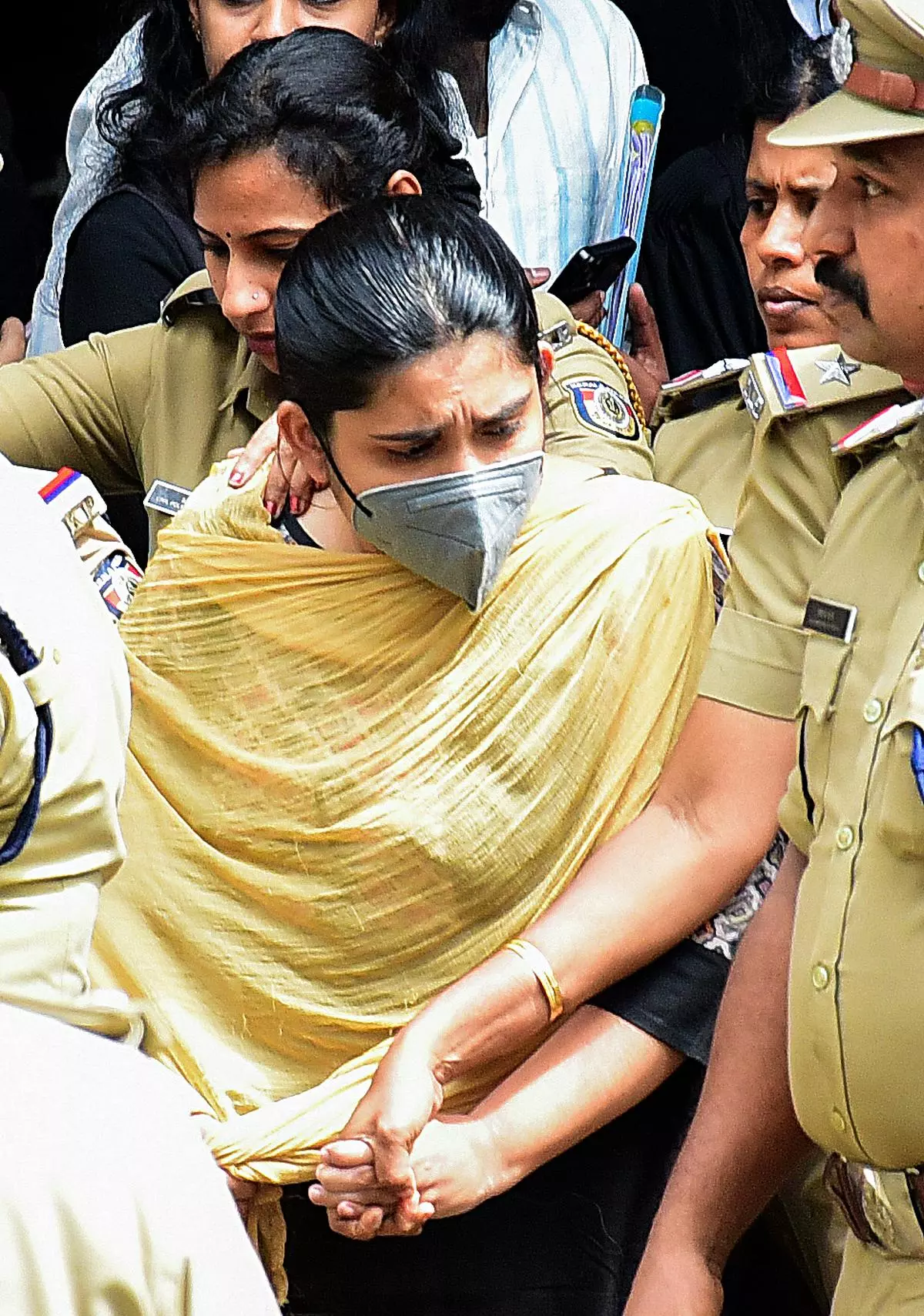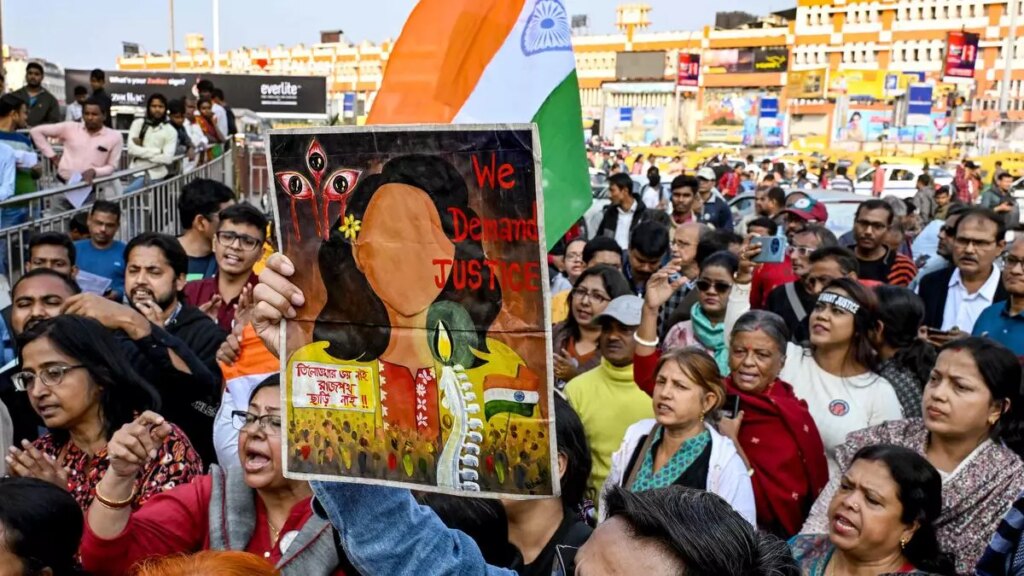The rape and murder of a trainee doctor at the R.G. Kar Medical College and Hospital, Kolkata, was the subject of the relentless media coverage, and of the suo motu hearing by the Supreme Court in recent weeks.
Just when everyone assumed that the convict in the case, the prime accused Sanjay Roy, was sure to be sentenced to death in view of the public outcry against the gruesome incident, the Additional Sessions Judge, 1st Court, Sealdah South 24 Parganas, West Bengal, Anirban Das, held in his judgment that the case did not fall under the “rarest of rare” category, warranting imposition of death sentence.
The widely-held assumption that the convict was likely to be awarded the death sentence, stemmed from similar punishment awarded and confirmed by the Supreme Court to those found guilty in the rape and murder of Nirbhaya in New Delhi in 2012, another gruesome incident which had shocked the nation.
Judge Anirban Das found forensic matching of DNA of nibble swab, hair, as well as blood of the victim found over the wearing of the accused. However, he refrained from imposing the death sentence on the convict because it did not balance the gravity of the crime with the principles of justice, rehabilitation, and the preservation of human dignity.
Also Read | Why a life sentence in the R.G. Kar hospital murder case has caused controversy
“The court must resist the temptation to bow to public pressure or emotional appeals and instead focus on delivering a verdict that upholds the integrity of the legal system and serves the broader interests of justice,” he wrote in the judgment.
Considering all the circumstances, the impact of the incident on society, and the sentiment of the public at large, the judge thought it prudent to impose rigorous imprisonment for the remainder of the convict’s natural life and a fine of Rs.50,000. The judge fixed Rs.17 lakh as the State’s liability to pay compensation to the victim’s family, as the offence was committed on her while she was on duty.
R.G. Kar verdict: Resisting public pressure
While Judge Anirban Das must be lauded for not bowing to public pressure to impose the death sentence on the convict, his judgment was found wanting for not offering any reasoning at all on why the case did not belong to the rarest of rare category, warranting extreme penalty of death.
However, by referring to the principles of rehabilitation, the judge left readers to infer that the prosecution did not produce evidence that would have led him to conclude that the convict could not be reformed, or that the alternative punishment of life sentence was foreclosed.
“The stringent criteria for a case to be classified as the “rarest of rare” has not been meticulously followed by the sentencing courts.”
The judge relied on a recent Supreme Court judgment in Manoj & Others v. State of Madhya Pradesh (2022), in which it was held that judges should never be blood-thirsty and that the scope and concept of mitigating factors in the area of the death penalty must receive a liberal and expansive construction by the courts in accord with the sentencing policy.
The judge, therefore, found it crucial to note that there is no evidence of prior criminal behaviour or misconduct by the convict. “Our duty is not to match brutality with brutality, but to elevate humanity through wisdom, compassion and a deeper understanding of justice”, as he put it. The measure of a civilised society lies not in its ability to exact revenge, but in its capacity to reform, rehabilitate, and ultimately to heal, he added.
The Greeshma-Sharon Raj case
In the second case, the Additional District and Sessions Judge, Neyyattinkara, Kerala, A.M. Basheer found Greeshma guilty of killing her lover, Sharon Raj, in order to marry another person, chosen by her family. The court found the manner of commission of the crime by Greeshma extremely brutal. She killed Sharon inch by inch. She enticed him with deceitful means and abducted him from his house offering sex. Having failed in the previous attempt to poison Sharon, she repeated it by administering poison in a meticulous manner, after researching on the internet. She offered juice to Sharon mixed with an overdose of paracetamol. The death was caused by using dangerous poison, a kapiq herbicide containing paraquat, which is hazardous to the life of human beings.
Her idea was to slow poison him and prolong his suffering. The judge found the crime committed by her as socially abhorrent and so repulsive that it provoked intense anger in the community. “Such a person cannot be reformed. The concept of socially abhorrent crime is rarest of rare”, the judge concluded.

S.S. Greeshma, sentenced to death in the Sharon Raj murder case, comes out of Neyyattinkara Additional District Sessions Court after the pronouncement of the verdict, in Thiruvananthapuram on January 20.
| Photo Credit:
Sreeram DK/ANI
The evidence of bleeding through the penis as noted in the post-mortem certificate reflects the corollary of brutality; the victim was suffering from excruciating pain from lips up to his anus due to corrosive poison, the judge concluded. The manner in which the murder was carried out in the present case is extremely brutal, gruesome, diabolical, and revolting as to shock the collective conscience of the community. There were two attempts, (by the accused) one failed, and the other accomplished, both held within a span of two months, (to kill the victim), the judge reasoned to explain why he found it a “rarest of rare” case.
The judge found that Greeshma carried the evidence with her in her mobile phone and she stored everything in the cloud.
Was Judge Basheer justified in imposing the death sentence on Greeshma? It appears that the judge reached his conclusion that she could not be reformed merely on the basis of the brutality of the crime. The judge perhaps did not realise that howsoever brutal the crime is, the reformability of a convict could be independently ascertained through the reports of the prison authorities.
Reformability of convict
The Supreme Court had held so in Manoj v. State of Madhya Pradesh (2022), which has been cited by Judge Anirban Das, who, like Judge Basheer, ignored its guidelines while forming an opinion about the convict’s reformability. The Supreme Court had held it mandatory in this case to call for reports regarding the jail conduct and psychiatric evaluation of the accused along with the probation officer’s report while recording findings about the reformability of the convict by the sentencing judge.
The Supreme Court was concerned in Manoj v. State of Madhya Pradesh that the sentencing court should not conclude about the reformability of a convict merely on the basis of presumptions if the crime is brutal. In particular, the prosecution should submit evidence to rule out convict’s reform, while asking for death penalty.
Also Read | Death penalty for rape: A counterproductive approach to justice
Even as these two cases travel to the High Courts and then the Supreme Court, where the appeals will be finally decided, the question of whether due process was followed while sentencing the convicts is likely to be examined afresh.
The “rarest of rare” doctrine, for creating exceptions when the death penalty can be imposed by sentencing courts for the offence of murder, was laid down in the landmark Bachan Singh case in 1980. However, the stringent criteria for a case to be classified as the “rarest of rare” has not been meticulously followed by the sentencing courts. It is time the apex court reiterates its guidelines to be followed in these and other cases.
V. Venkatesan is an independent legal journalist based in New Delhi. Formerly Senior Associate Editor with Frontline, he has been reporting and commenting on legal issues.
Source:https://frontline.thehindu.com/columns/r-g-kar-verdict-greeshma-sharon-raj-murder-case-death-penalty-rarest-of-rare-doctrine-supreme-court/article69139953.ece

